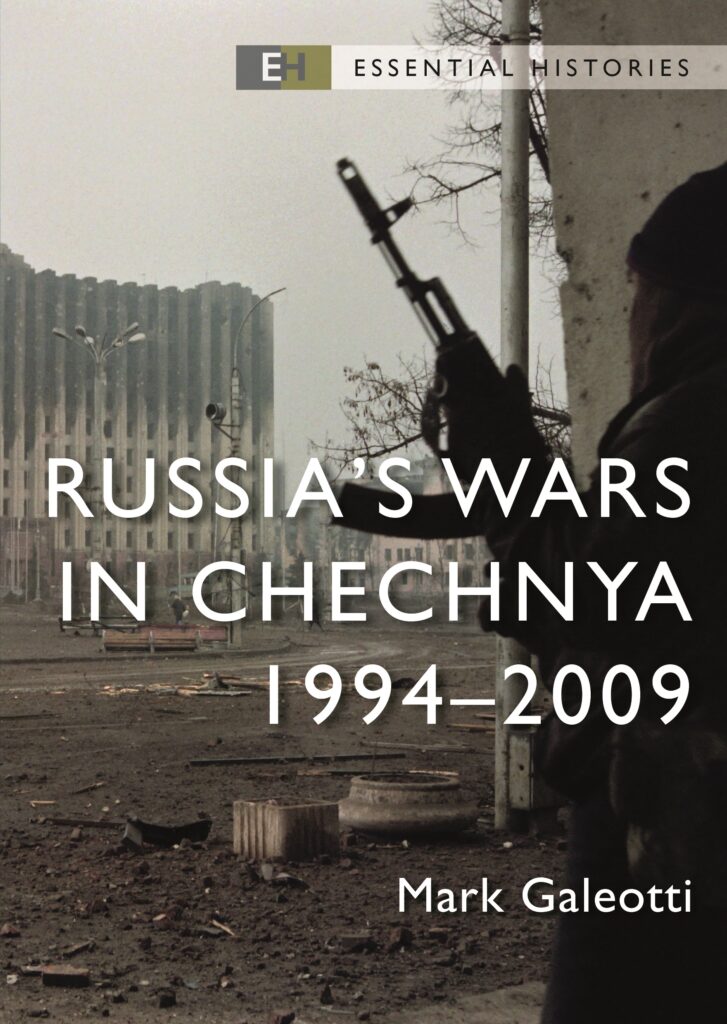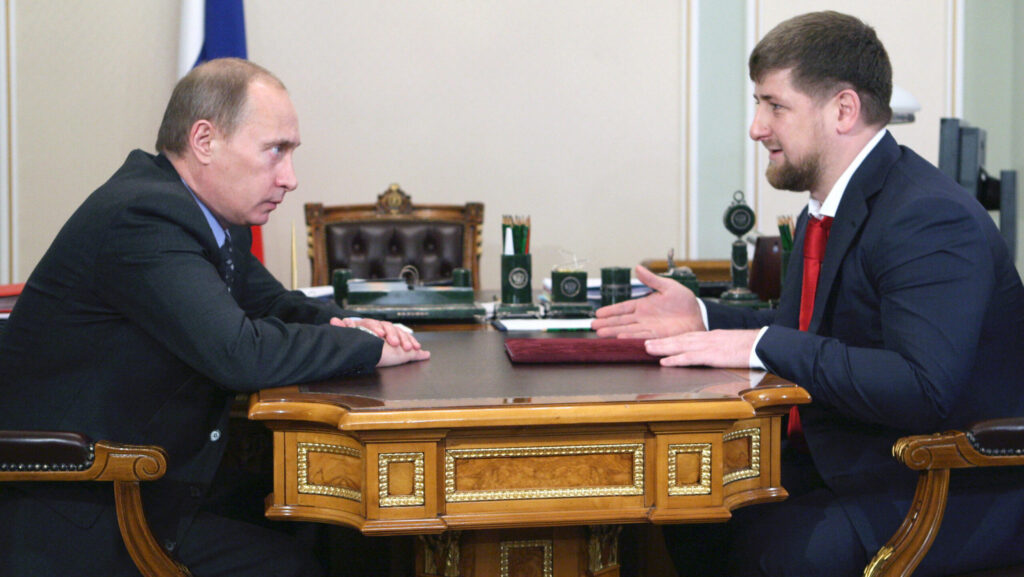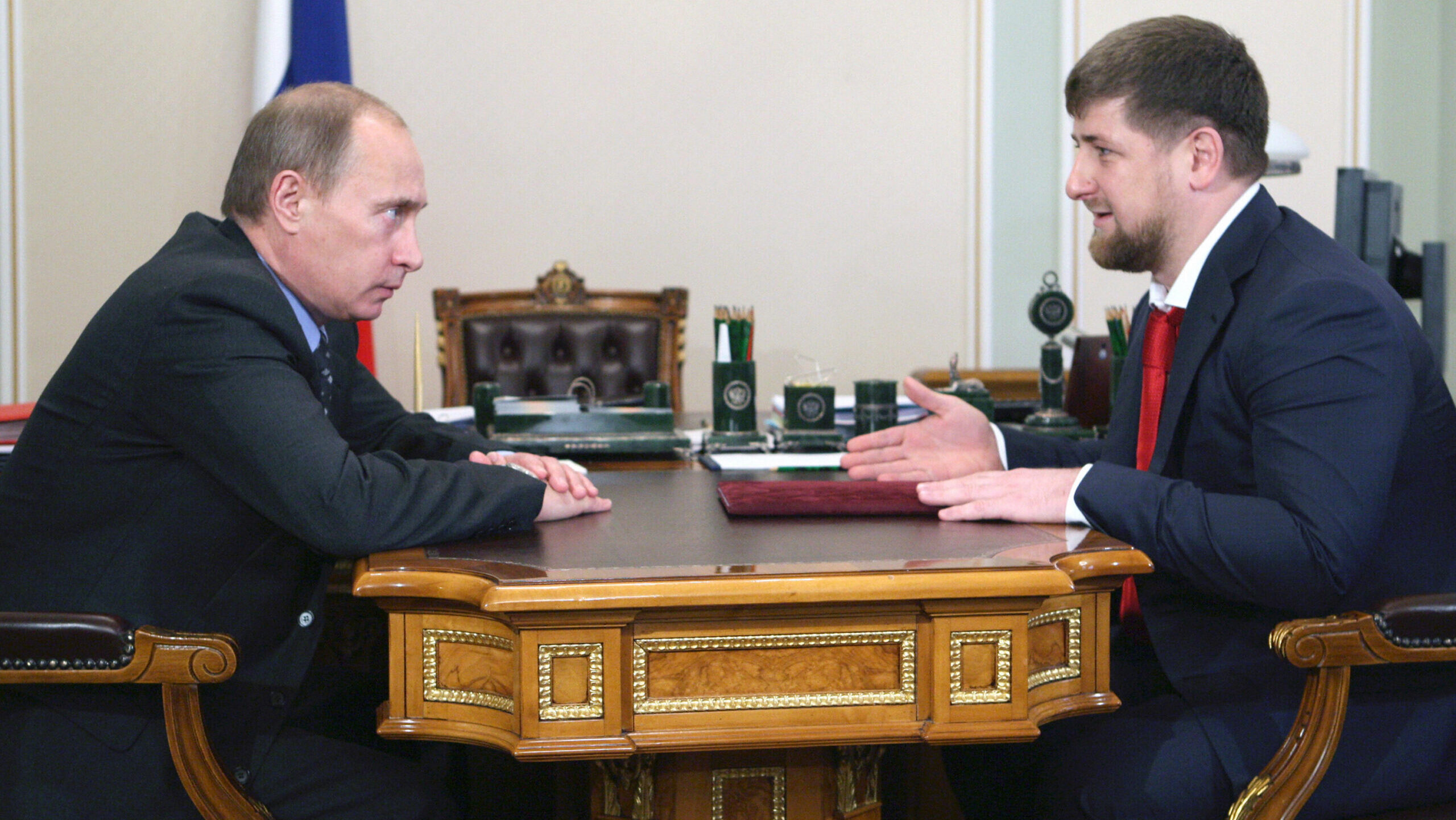The wars in Chechnya were the first major test for Vladimir Putin, who employed brutal tactics to obliterate resistance in the North Caucasus. Author and historian Prof. Mark Galeotti explains how the conflicts changed the relationship between the Kremlin and the blighted region.
Image credit: ALEXEY DRUZHININ/AFP via Getty Images
Mark Galeotti is Honorary Professor at University College London’s School of Slavonic and East European Studies, as well as the head of the Mayak Intelligence consultancy. He has published multiple books and articles on Russian history, and is a frequent commentator on the nation’s political affairs, particularly with regards to the war in Ukraine.
His book Russia’s Wars in Chechnya 1994–2009 (Osprey, 2014) has now been updated with 50 new images, alongside additional analysis of the events in the last decade in Ukraine. Here he discusses the current and potential impact of the conflict in Ukraine on Chechnya and its oppressive regime under Ramzan Kadyrov. The new edition of Mark’s book is on sale now.
For more information visit ospreypublishing.com

What is the perception of Chechnya, and Chechens, among Russian society in general?
Chechens are, to be blunt, feared and resented, more so I think than any other ethnic group within the Russian Federation, and that applies as much to the latte-sipping metropolitans in Moscow as grizzled factory workers in the Siberian rust belt.
In part, this is because of the (heavily mythologised) brutality of Chechen organised crime, in part the experiences of the Chechen war and the associated mass terrorist attacks (with thousands being seized as hostages in hospitals in 1996 and 1995, a theatre in 2002 and a school in 2004) and in part a rich vein of nineteenth-century ‘colonial literature’ in which the wily and indomitable Chechen was a recurring threat to Russian imperial expansion.
Why did the Kremlin choose to militarily crush Chechen independence, when it had allowed other nations to separate without a shot fired?
Ukraine, Georgia and the rest of the other states that acquired independence at the end of 1991 had been notionally separate nations within the wider Soviet Union, whereas Chechnya was a part of the Russian Federation itself. As a result, Moscow feared that if it let it go, it would simply embolden other parts of the Federation, which would quickly unravel.
Chechnya had not only to be kept within the fold, it had to be done with such a heavy hand that any other potential separatists were deterred – and after the First Chechen War, in which the rebels essentially fought Moscow to a draw, it was not only vital that they be taught a bloody lesson, but it would be essential to the rise of Vladimir Putin that he demonstrate that he could win where his predecessor Boris Yeltsin had failed.
Related: Mark Galeotti’s Five History Lessons For Putin
Is there still an active Chechen resistance movement? Where, and how much support does it have?
Chechnya today is under the vicious personalistic authoritarian rule of Ramzan Kadyrov, a former rebel commander who defected to Moscow’s side after the First Chechen War. As a result, there is no real resistance movement still present inside Chechnya beyond the odd, very sporadic terrorist incident. There is certainly a certain amount of resentment against Kadyrov and his corrupt and brutal regime, but no real way to express it.
What resistance survives is now outside the country, from agitators and fund-raisers in Europe (who face the very real risk of assassination by Kadyrov’s agents) to the various Chechen units fighting on Kyiv’s side in Ukraine: the Dzhokhar Dudayev, Sheikh Mansur, Khamzat Gelayev and Separate Special Purpose Battalions which, titles notwithstanding, are closer to companies in strength.
How precarious is the balance of power in the Chechen leadership today?
Putin depends on Kadyrov to keep Chechnya quiet – especially right now, he cannot afford a Third Chechen War. Kadyrov depends on Putin to keep the money flowing – if nothing else, it allows him to maintain his personal security forces and keep the rest of the Chechen elite sweet.
Both men are dogged by rumours of their ill-health, but if Kadyrov goes, it is not clear whether Chechnya really will be destabilised. Conversely, if Putin goes, his successor will probably want to get rid of the unpredictable and often-inconvenient Kadyrov, but may well also not be willing to risk renewed turbulence in the North Caucasus.

Credit: ALEXEY DRUZHININ/AFP via Getty Images
Have the underlying causes of the Chechen Wars been resolved, and under what circumstances might a third conflict break out?
Ever since they were conquered by the Russians, the Chechens have seized any opportunity to try and break free, from the chaos of the Bolshevik Revolution to the collapse of the USSR. For now, they may seem cowed, but I cannot see this lasting forever. Whenever Moscow looks weak or distracted, then there is the risk of a renewed bid for freedom.
Related: The Five Day War: Putin’s First Crimea
How might any eventual outcome in the Ukraine war change the status quo in Chechnya?
Kadyrov has no chance of taking power in Moscow: he is feared and despised by most of the central elite – including the security apparatus – and his power base is Chechnya. He has performatively sent his ‘Kadyrovtsy’ to fight in Ukraine, but in practice done everything he can to keep them away from any actual fighting, as they are vital for his personal survival.
Whatever happens in Ukraine, so long as Moscow feels it must pay Kadyrov off to keep the peace, and can afford to do so, then the status quo will likely abide.
Follow Mark Galeotti on Twitter @MarkGaleotti. To read more on the military history of Russia and the Chechen Wars pick up History of War issue 128, where this interview originally appeared.
